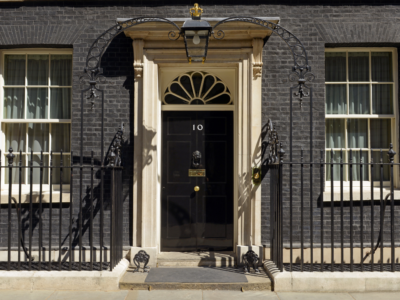Average prices in the UK housing market are likely to make moderate gains between now and 2025, according to an economic outlook report by professional services firm PwC, based on their central projection for the housing market.
PwC carried out its forecast covering a six-year period using three alternative scenarios for how the UK economy might be expected to perform in the coming years. Under a ‘high’ scenario, PwC predicts wages will rise, boosting housing demand.
In the ‘main’ scenario, where the UK economy bounces back after an orderly exit from the EU in 2019, prices would grow at a moderate pace. In their ‘low’ scenario, PwC expects weaker wage growth, lower mortgage lending and house prices to shrink slightly before stagnating.
PwC noted that their projections for the housing market did not factor in the potential impact of a disruptive no-deal Brexit, indicating that the low scenario might require a further downgrade, to factor in the potential ramifications of such an outcome.
Slow growth for 2019
In the outlook report, PwC project that UK average house prices will see slower growth in 2019, at a rate of just 1 per cent, with average prices reaching £231,000. They also noted that this figure was substantially lower than the average growth rate of 4 per cent that investors had come to expect since the financial crisis in 2008.
Beyond 2019, PwC’s main scenario forecast expects price growth to pick up from 2020 onwards, levelling out close to its post-financial crash growth rate by 2025, meaning that average prices would reach £287,000 by the end of the forecast period.
PwC cited Brexit uncertainty as a leading cause for slow growth this year but expects an orderly Brexit to allow the uptrend in house prices to resume eventually. As a result of slow price growth in 2019, PwC expect earnings to keep up with house prices, causing the price-to-earnings ratio to remain fairly stable, with the average home expected to cost 8.4 times the average worker’s wages, between 2019 and 2025.
London is expected to see average house prices shrink by 1.2 per cent in 2019, before returning to growth of 1 per cent in 2020. In comparison, Wales is expected to see house price growth closer to 4 per cent in 2019, followed by growth of 4.2 per cent in 2020, more in-line with the national average, since 2008.
Implications for future policy
PwC’s forecasts for continued expansion in average house prices, based on assumptions for an orderly Brexit process, outlined the need for the next Government to resolve the shortage of affordable homes in their view.
Much of the potential gains in average prices in the UK housing market, according to PwC, would depend on continued resilience in wage growth and economic stability, as implied by the different scenarios presented in the outlook report.
The report added: “The high cost of housing has implications for key workers as well as those in other professions. For example, it may prevent people who work in key professions from living in certain areas of the country, which could lead to shortages of workers.”
PwC warned that a lack of affordable housing for key workers risked dampening prospects for productivity growth.
The report concluded: “There are a number of levers that the Government could pull to make housing, and particularly rents, more affordable. Most of these involve increasing the supply of properties, to put downward pressure on property price inflation.”






















Comments